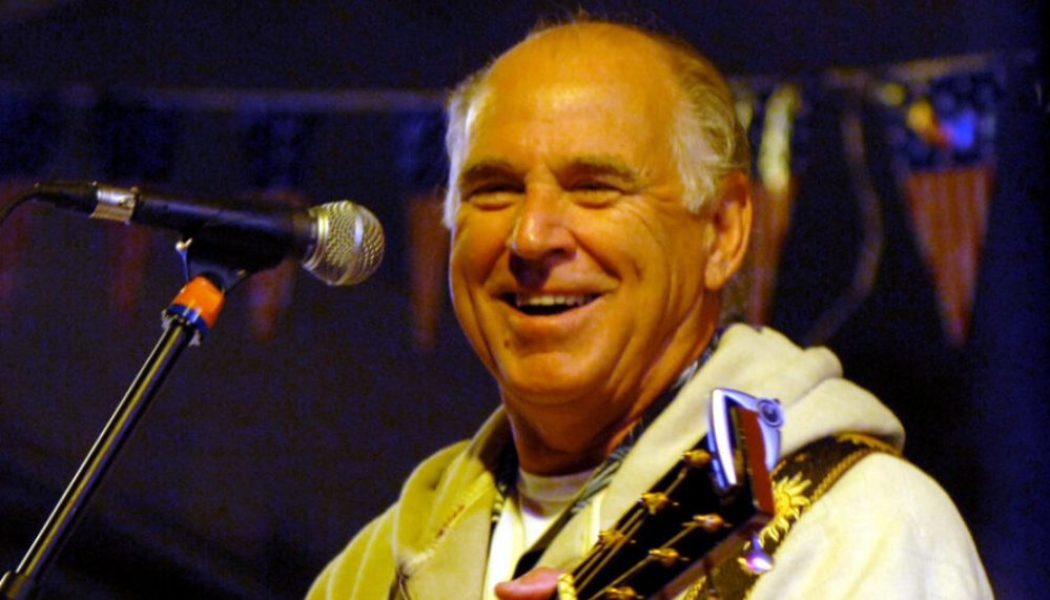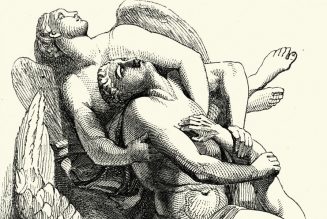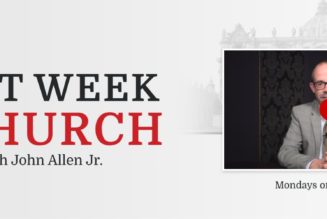
I loved Jimmy Buffett. Loved his music, loved the easy-going island life he sang about. And I loved his persona, his apparent perpetual cheerfulness. He seemed like a guy I would enjoy drinking a margarita with. Of course, I never did. The closest I ever got to him was a concert back in 1994. It was close enough to see that this guy had an amazing gift for connecting with his audiences, and with people in general. That experience made me, if not a full-fledged Parrothead, at least an enthusiastic fan.
In the wake of his death, I’ve seen a lot of pixels spilled about his Catholic background and the Catholic “themes” in his music. Of course, everybody acknowledges that his lyrics were never explicitly Catholic, but that the themes of work/life balance, enjoyment of God’s creation, and personal responsibility (“It’s my own d@mned fault”) hearken to a Catholic worldview, and must be reflective of his upbringing in the faith.
OK, I guess I can buy that to a certain extent, although a lot of those same “themes” would fit into many other philosophies. The New Age movement, for instance, is very big on enjoying creation, although it is no more direct than Jimmy was in attributing it to the God we worship.
But I disagree that Catholic themes never appeared in his music. Take, for instance, these lines from his 1973 hit “Grapefruit — Juicy Fruit”:
Drive in
You guzzle gin
Commit a little mortal sin
It’s good for the soul
See? He had very explicitly Catholic lyrics. They just weren’t the kind that made a strong case for Jimmy’s latent Catholic faith.
Honestly, I’m not entirely sure what to do with that lyric, not being inside Jimmy’s 1973 brain. Trivializing sin? Slapping a little Catholic reality on the American tradition of fooling around at the drive-in? Who knows? All I know is that whatever it was, it wasn’t evangelization.
– Advertisement –
We as Catholics so often feel like pop culture outsiders, so it’s easy for us to want to find commonality. Which may exist, to a certain extent. But it is dangerous when we try to claim public figures as “one of us” when they most decidedly are not.
We’ve been doing it for years. Back in my early ministry days, I wrote for a Catholic youth magazine run by a good friend of mine who had a lot of Hollywood connections. Each issue’s cover would feature a different celebrity, with an interview where he got them to say something Catholic. It was all well and good until those same celebrities were quoted in other outlets saying some decidedly not-Catholic things. I remember in particular an interview with a popular TV star of the era who shall remain unnamed. He also had a Catholic background and managed in our interview to come off sounding like a regular altar boy. Then, a few months later I saw him quoted, I believe in People, basically saying that he really enjoyed having sex with lots of different people. Or something like that. Which wasn’t so ideal once we had set him up as a Catholic role model.
I have recently seen similar articles about Bruce Springsteen’s Catholicism. In his truly excellent autobiography, I learned that he grew up literally in the shadow of the Catholic Church. His childhood home was located directly next to St. Rose of Lima Church in Freehold, NJ, where he and his family were very active. So yes, I see Catholic imagery in his music. How could it not be deeply imprinted on a poetic soul who grew up so Catholic? But, on a deeper level, I ask myself how we lost him. How did that faith slip away? What could we as a Church have done differently?
And how did we lose Jimmy?
Bruce Springsteen, like Jimmy, holds many decidedly un-Catholic positions. But he has said in interviews that he still feels drawn to the faith of his childhood — that he respects it and that he occasionally attends Mass. He has also said that he is not prepared to fully return.
If Jimmy Buffett said anything similar, I am not aware of it.
I have no problem with all of the discussion I’m seeing about Catholic themes in Jimmy’s music, or Bruce’s. It’s all very interesting. I just want to temper it a little bit. It’s one thing to say “OK, here’s a guy who has some Catholicism in his background, and those themes made it into his music and perhaps into the way he lived his life.” It’s quite another to say “Look! He’s one of us! Emulate him!!”
Granted, not a single author I have seen has said anything remotely resembling that. But I also know that what we write and what our audiences take away are often two separate things. Especially for those mourning the death of a truly beloved icon, it can be difficult to resist the urge to rebuild him in our own image and likeness.
Jimmy Buffett was a talented musician. He was also, from all reports, a very loving and generous man who did a great deal of good in his life. And, I assume, a man who was trying to do good as best he understood it. But, despite his upbringing, he was not a practicing Catholic. It is my great hope that when we see articles about his or Bruce’s or anybody else’s Catholic “background”, it doesn’t lead us to put them on some kind of faith-based pedestal.
I hope instead that it becomes an opportunity for prayer. We can pray for Springsteen’s return to the faith. We can thank God for all the good Buffet did, and all of the joy he brought to so many. And, because God is outside of time, we can pray that he sought the faith of his baptism as he battled his final illness, and for the repose of his soul.
May Jimmy Buffett’s soul, and the souls of all the faithful departed, through the mercy of God rest in peace.







